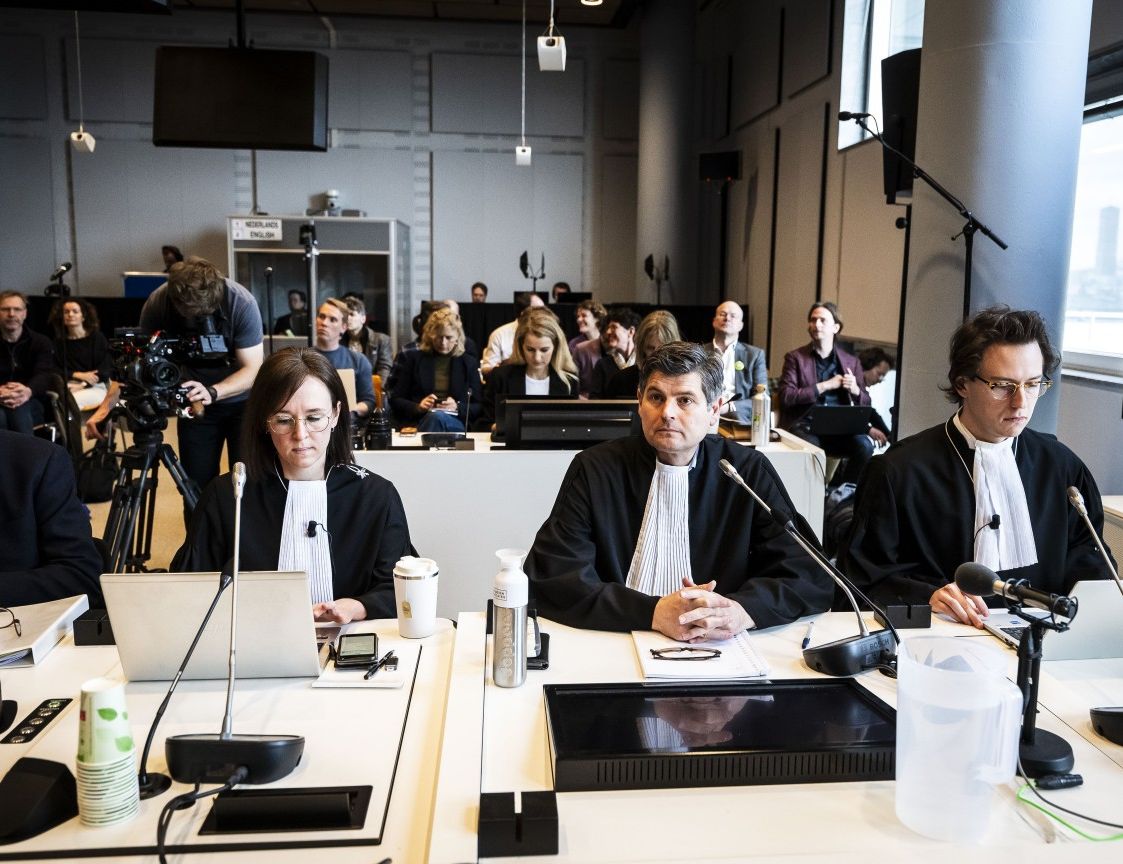Gesprek | Lawyer Up! Mobilizing the Courts for the Fight against Climate Change
Reeks 'Green Germany? How to Tackle "Umweltpolitik" in a Shifting International Order?'
| Activiteit van Duitsland Instituut Amsterdam |
|
|---|---|
| Datum: | donderdag 17 oktober 2024 om 19:30 uur |
| Locatie: | Pakhuis de Zwijger, Workspace, Piet Heinkade 179, Amsterdam |
| Informatie: | Voertaal: Engels. Aanmelden |
| Toegang: | Gratis |
Rechters en advocaten zijn belangrijke acteurs geworden in de bescherming van natuur en klimaat. De internationaal geroemde rechtszaken van Urgenda tegen de Nederlandse overheid en van Milieudefensie tegen Shell getuigen hiervaan. Tijdens deze avond in Pakhuis de Zwijger (Amsterdam) bespreken we deze ontwikkeling - en ook de controverses erover - met Katharina Bachmann, onderzoeker bij Milieudefensie in de zaak tegen Shell en Martin Heger, hoogleraar (Milieu)Strafrecht aan de Humboldt Universiteit Berlijn.
De voertaal is Engels.
Judges and lawyers have become crucial actors in the protection of the climate. In the last decade there has been a remarkable international surge of litigation against states and companies to force them to implement more effective climate protection policies. The Dutch cases of Urgenda v. the Dutch government and Milieudefensie v. Shell are internationally acclaimed milestones on the path to the establishment of climate protection as a legal right and obligation. Many countries, mainly but not exclusively in the Global North, have embarked on this course, not least Germany. Finally, international courts are increasingly inclined to recognize a clean and safe environment as a human right and one of the essential preconditions for the existence of democratic societies.
The expansive use of litigation for climate policy is, however, not an unmitigated success story. While the proponents of climate litigation emphasize its positive role in the public debate, critics question if courts are the right place to discuss profoundly political issues. Does the legal route simply short-circuit the democratic process? Should judges and lawyers be in charge of problems that need to be addressed by parliaments and the public? Is the mobilization of courts judicial overreach? Does it disproportionally hurt companies and national economic interests?
In this event, we will discuss these recent trends and controversies with two leading German and Dutch experts in the field. Prof. Martin Heger (Humboldt University Berlin) will talk about the role the criminal law plays in the protection of the environment, combining German, European and global perspective. And Katharina Bachmann will discuss her work for Milieudefensie in the case against Shell. Moderation: Peter van Dam (Universiteit van Amsterdam).
About the speakers
Martin Heger holds the Chair of Criminal Law and Criminal Procedure, European Criminal Law and Modern Legal History at the Faculty of Law at Humboldt University in Berlin. He habilitated on the subject of “The Europeanization of German environmental criminal law” at the University of Tübingen. He is an expert on the Europeanization of criminal law and criminal procedural law with a particular focus on economic and environmental criminal law as well as the development of law in Europe since modern times.
Katharina Bachmann is a researcher at Milieudefensie (Friends of the Earth Netherlands), where she is carrying out analysis for Milieudefensie’s climate court case against Shell. Since 2019, Katharina has been working with different organisations and initiatives to accelerate climate action on different societal levels. Katharina graduated in climate policy from Wageningen University in 2021 and has since been working with German and Dutch NGOs to hold large polluters accountable. At Milieudefensie, Katharina specialises in oil and gas value chains and energy transition towards net zero.
Peter van Dam (moderator) is professor of Dutch history at the University of Amsterdam. His research focuses on the history of civic initiative and activism as well as the history of historiography. His current research revolves around the question how people have tried to make the world more sustainable: Which problems did they identify? And how have they translated their hopes and fears into initiatives to shape their societies?
Duitsland Instituut Amsterdam in cooperation with Pakhuis de Zwijger

